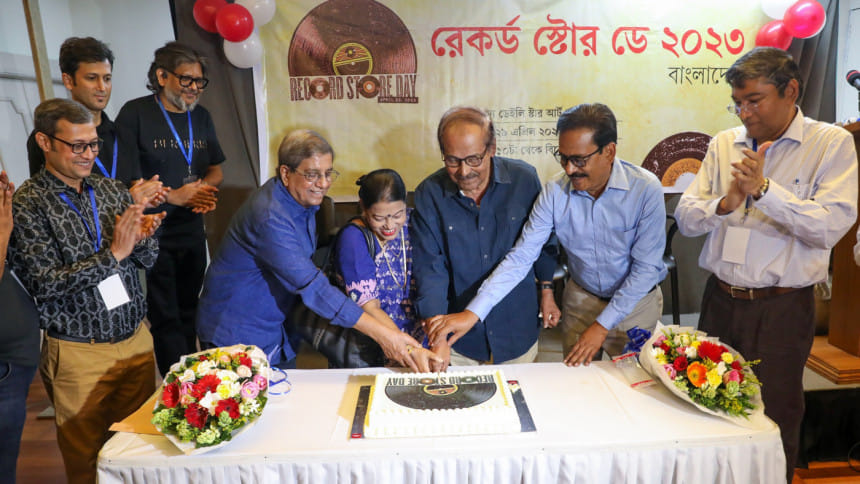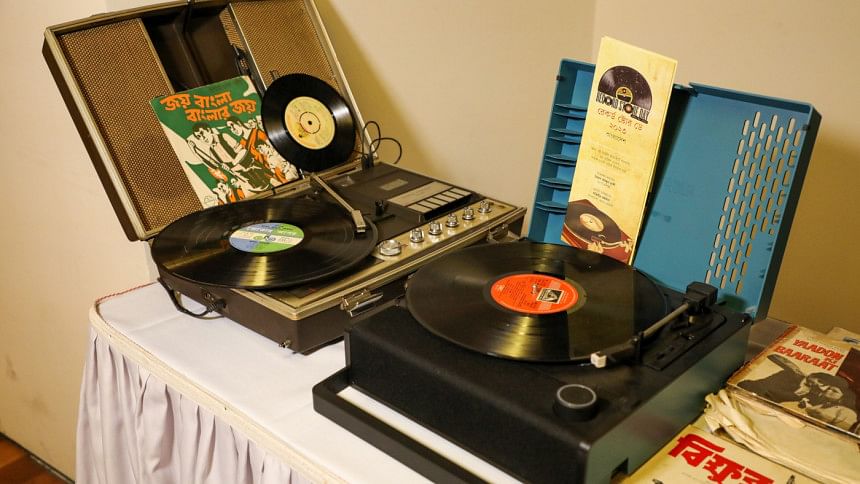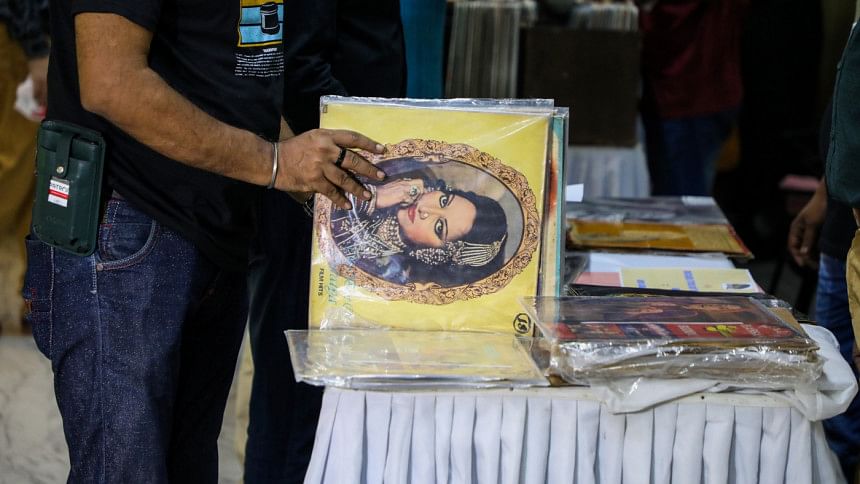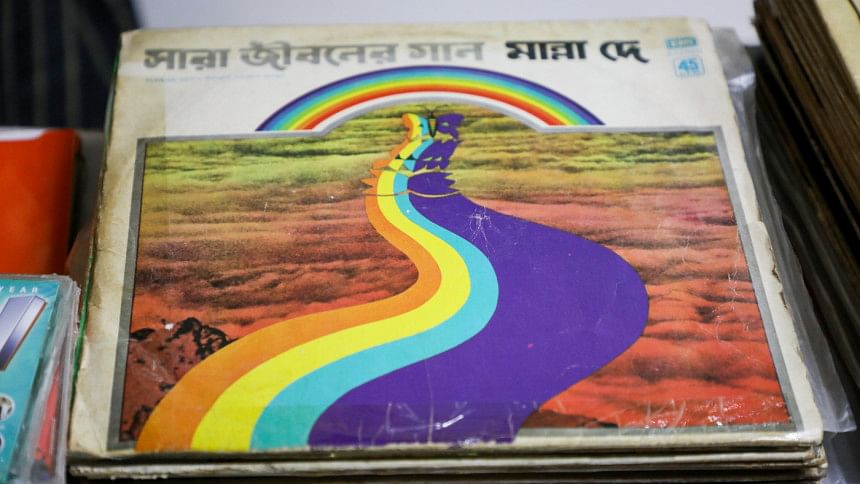Records open a nostalgic portal to the past
In a fast-paced world, where one can listen to music with just a tap on their phones, music lovers flocked to The Daily Star to witness the first exhibition of gramophone records in Bangladesh.
As April plays host to the occasion of World Record Store Day—which took place on April 22—a day-long record exhibition was organised, for the first time in Bangladesh, yesterday at The Daily Star Art Gallery in the capital.

"Through vinyl, you can inherit not only music but also memories that can tell stories to your next generation," said Hafizur Rahman, a renowned record collector and enthusiast, when speaking about the hobby of collecting records.
Renowned musician Syed Abdul Hadi inaugurated the event, while journalist and editor of Prothom Alo, Matiur Rahman, was the main speaker. Noted folk singer Farida Parveen was also present at the event.
"When I was a teenager, I used to save money from my tiffin allowance and used to buy records using that money. At that time, each record would cost BDT 7. You couldn't imagine how much effort the singers put in just to record one song," said Syed Abdul Hadi.

"Nowadays, we can listen to music on digital platforms. However, the purest form of music was recorded on the gramophone. If you are truly an audiophile and music enthusiast, you can tell the difference in audio quality between digital platforms and gramophone records," he added.
In the sixties and seventies, gramophone records were the only medium to record music in this subcontinent. Many timeless songs by legendary artistes were recorded through this medium. Looking back, most of the songs of Swadhin Bangla Betar Kendra were released by Kolkata's Hindustan Records in 1971.
There was also a record company in Dhaka called Dhaka Records. Many believed that this company secretly published the first recording of Bangabandhu Sheikh Mujibur Rahman's March 7 speech. Aside from this, many Bangladeshi films and music were released by Dhaka record, most of which are just an anecdote in the history books now.

"Today, around 16 collectors have brought their gramophone records to exhibit. Some records are open for sale, while others are just for display. We have a wide range of records here, from Gauhar Jan, who was the first recording superstar of India, to Runa Laila. We have some rare pieces here, like a recording of Bangabandhu Sheikh Mujibur Rahman's historical March 7 speech," said Paritosh Kumar Deb, Member Secretary of the Record Store Day celebration committee.
"We didn't expect such an overwhelming response. We are planning to organise this event on a broader scale in the upcoming years," he added.

Syed Danik, who is the director of Universal Music, came to the exhibition with his collection of 800 records. He has been in this industry for over 32 years now.
"In our country, nobody makes these gramophone records anymore. It's our duty to preserve the classic songs through these records. I hope this type of celebration will help the younger generation learn more about our arts and culture," he said.

World Record Store Day was conceptualised by Chris Brown, owner of American Bull Moose Music, and Eric Levine, proprietor of Criminal Records. Due to their united effort, World Record Store Day was observed for the first time in 2007. Now, this occasion is observed and celebrated all over the world.

 For all latest news, follow The Daily Star's Google News channel.
For all latest news, follow The Daily Star's Google News channel. 



Comments